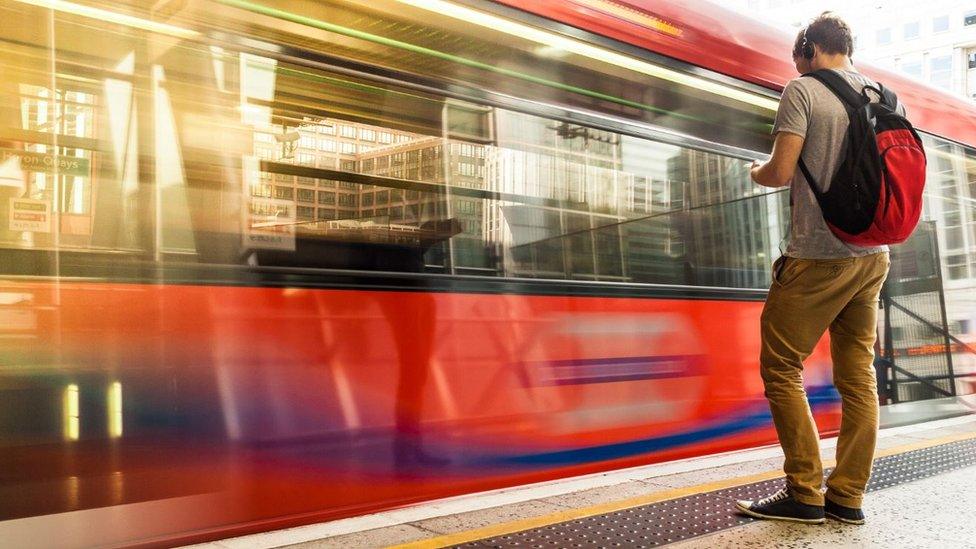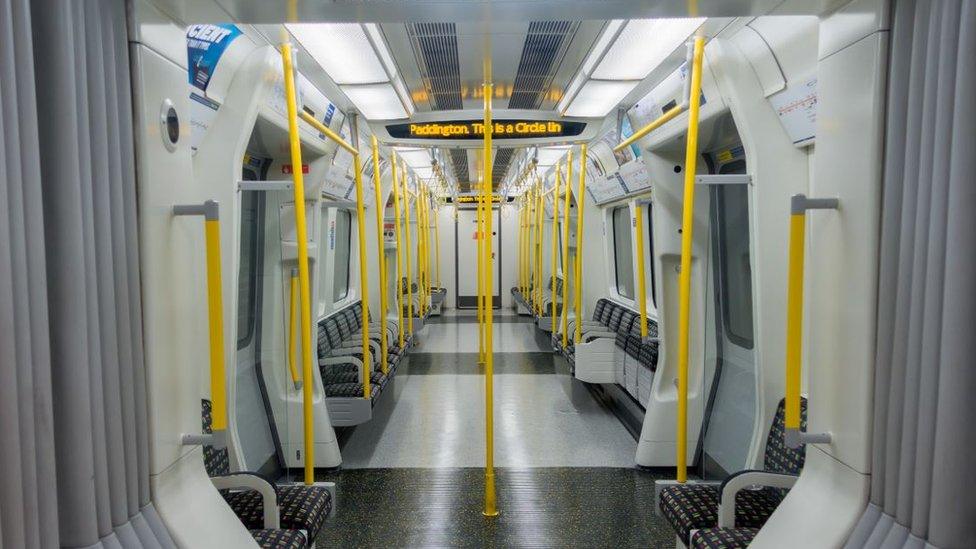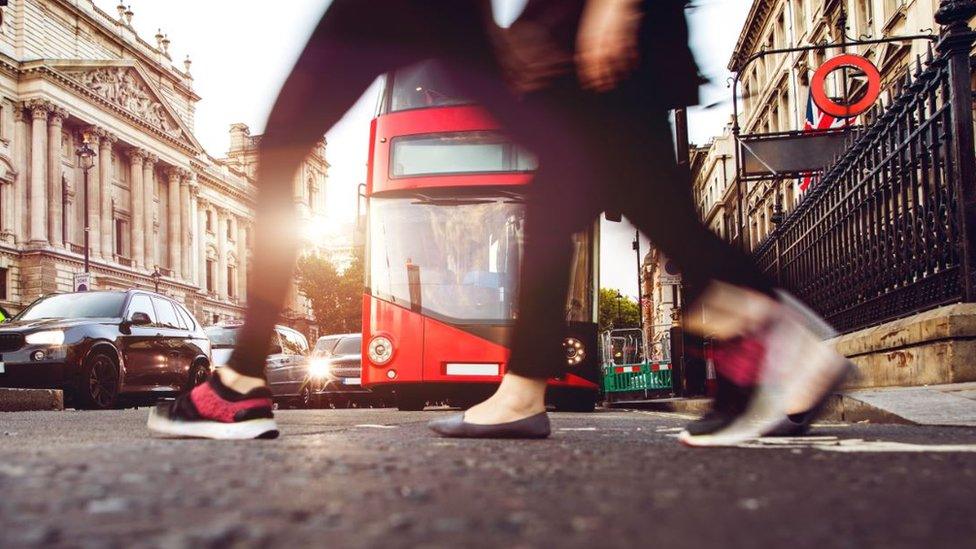TfL 'can't pay the interest-only mortgage'
- Published
- comments

Insiders say there is anger at the scale of cuts TfL faces
We've known for some time that Transport for London (TfL) is facing big challenges in balancing its budget.
Commentators say it is facing a perfect storm of Government cuts (once £700m a year), a partial fares freeze (£640m) as well as a dip in passenger numbers.
To deal with that it is trying to improve its efficiency and increase its income from commercial activity.
Now, we can see in black and white with a leaked internal email to staff just how tricky the situation is. With one division - Surface Transport - not at the moment on target to meet its efficiencies.
Insiders at TfL have told me there is considerable anger at the scale of the cuts they face.
The email says TfL "will make a loss next year of £968m".
It says after day-to-day operating costs, there's not enough money to pay for planned renewals to make assets last longer and there's no money to pay interest on money borrowed.
In a rather pertinent summary the email says: "If this was our household budget, this would be the same as not having enough money left over from our salary each month to pay our interest-only mortgage or get our car serviced."

A dip in passenger numbers is a cause for concern for Transport for London
The email blames removal of the Government grant - at one point £700m a year - and a dip in passenger numbers and a drop in the Congestion Charge.
It doesn't blame the mayor's partial fares freeze which will also cost £640m. In fact it says the fares freeze has cushioned the fall in passenger numbers.
And within the Surface Transport division in particular, which covers roads, buses, the Docklands Light Railway (DLR) and Overground, the warnings are very stark: "we are still forecasting to miss our budget" and "we need to reduce our costs accordingly".
The email also says TfL can sustain its position for a short period of time by using savings but it says "this is clearly not a sustainable position to be in an organisation".
We have known for a long time TfL is trying to make cuts to balance its budget.

Many senior managers have left, new Tube trains have been cut and bus services will be reduced by 7%.
Commentators say the organisation is facing a perfect storm financially.
A TfL spokesperson said: "London is leading the way in showing how you can keep fares affordable, while still investing record amounts in creating world-class infrastructure. Although overall ridership is currently slightly lower than originally budgeted, ridership on the bus, Tube and rail services is regularly outperforming that elsewhere across the country - helped by the fares freeze, the Hopper fare and improved reliability.
"Through our recently published budgeted and balanced Business Plan, we are continuing to invest record amounts in the transport network to deliver a wide range of improvements and make London a fairer, greener, healthier and more prosperous city for everyone.
"Our extensive efficiency programme has already helped reduce operating costs this year by £194m and is ahead of budget and more than offsets any reduction in revenue. The introduction of the Elizabeth line later this year will further improve ridership across the Capital and transform journeys for millions of people."
Until now most passengers haven't noticed these cuts. The question is how much longer will that last?
- Published9 January 2018